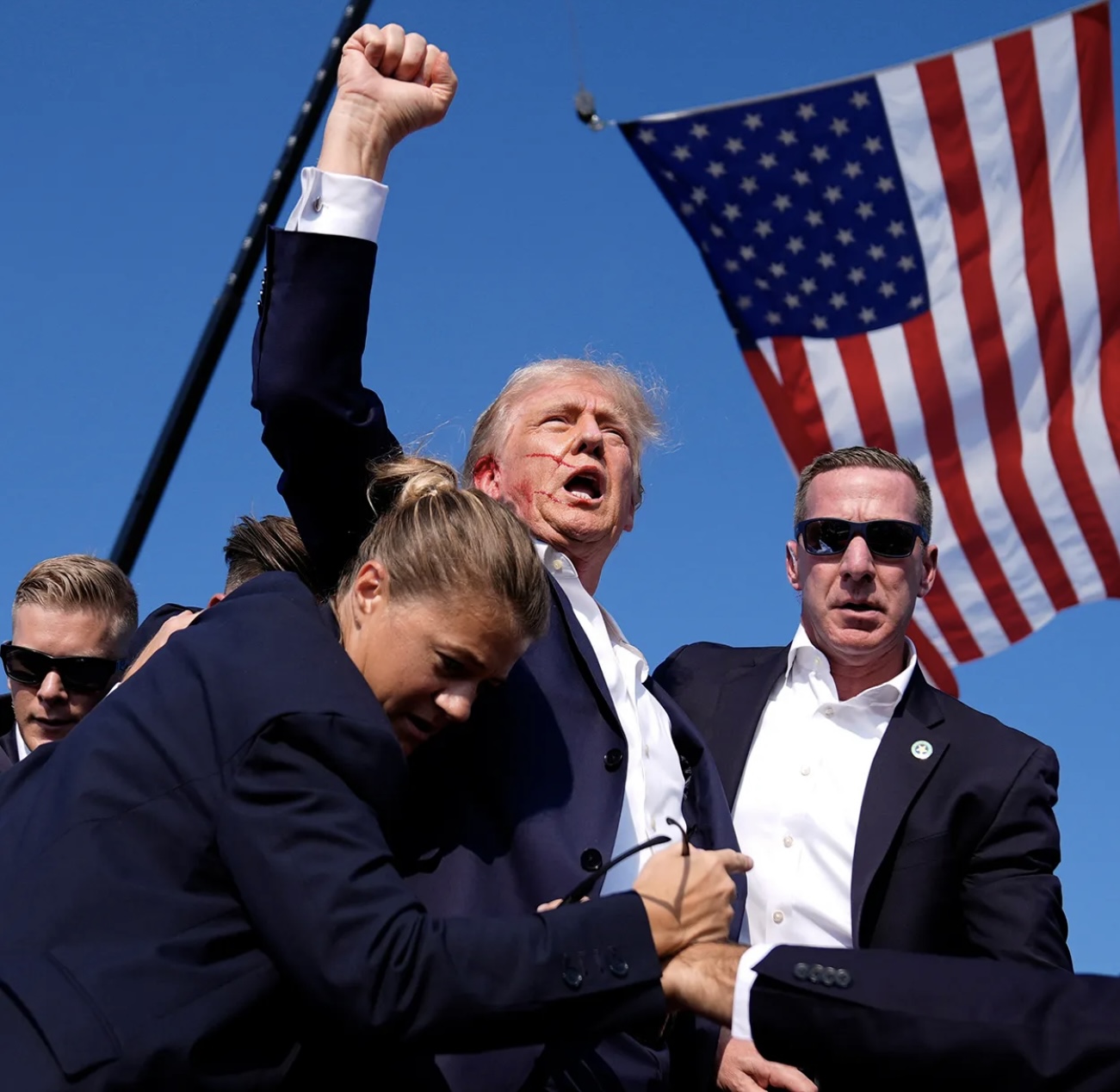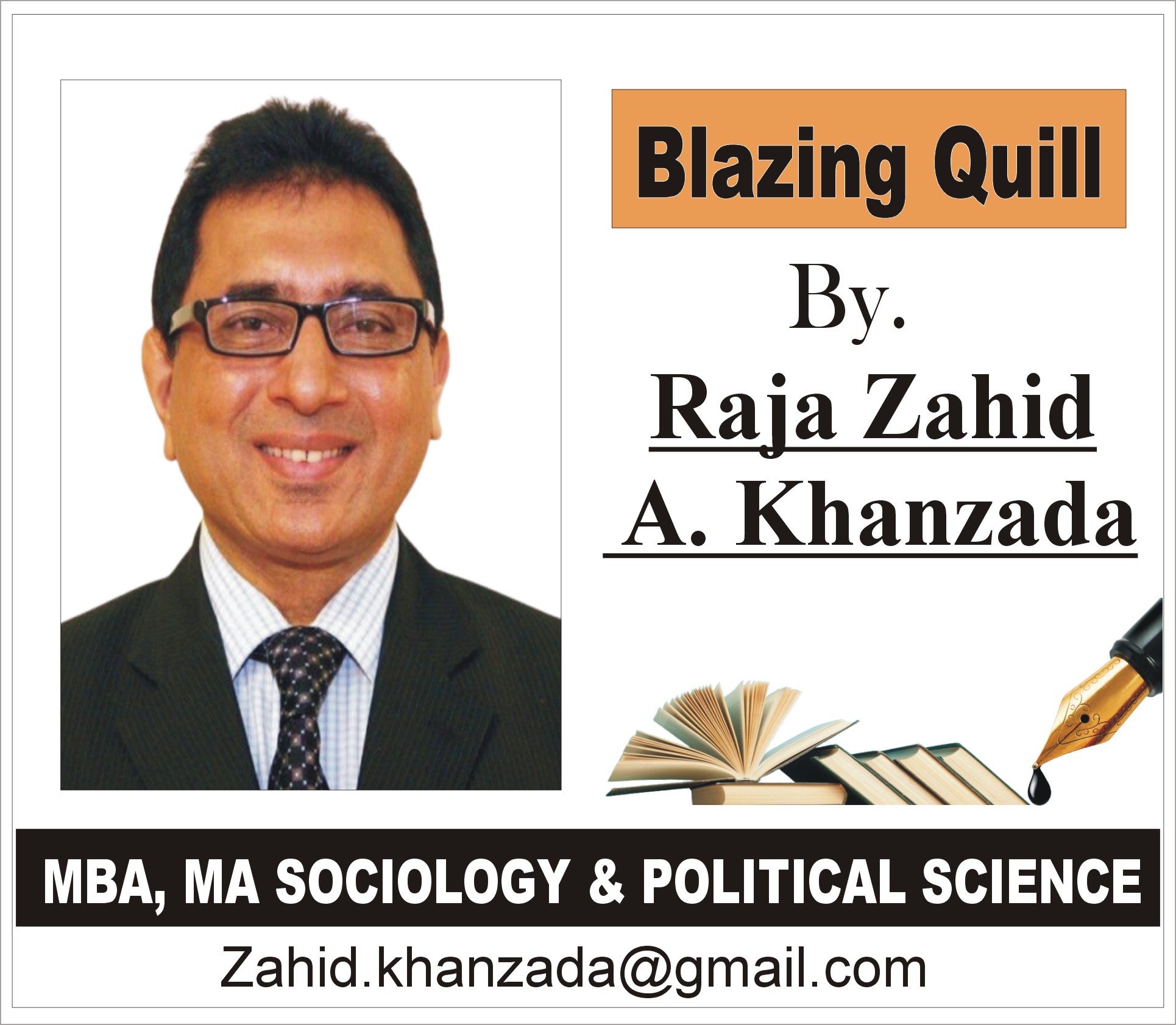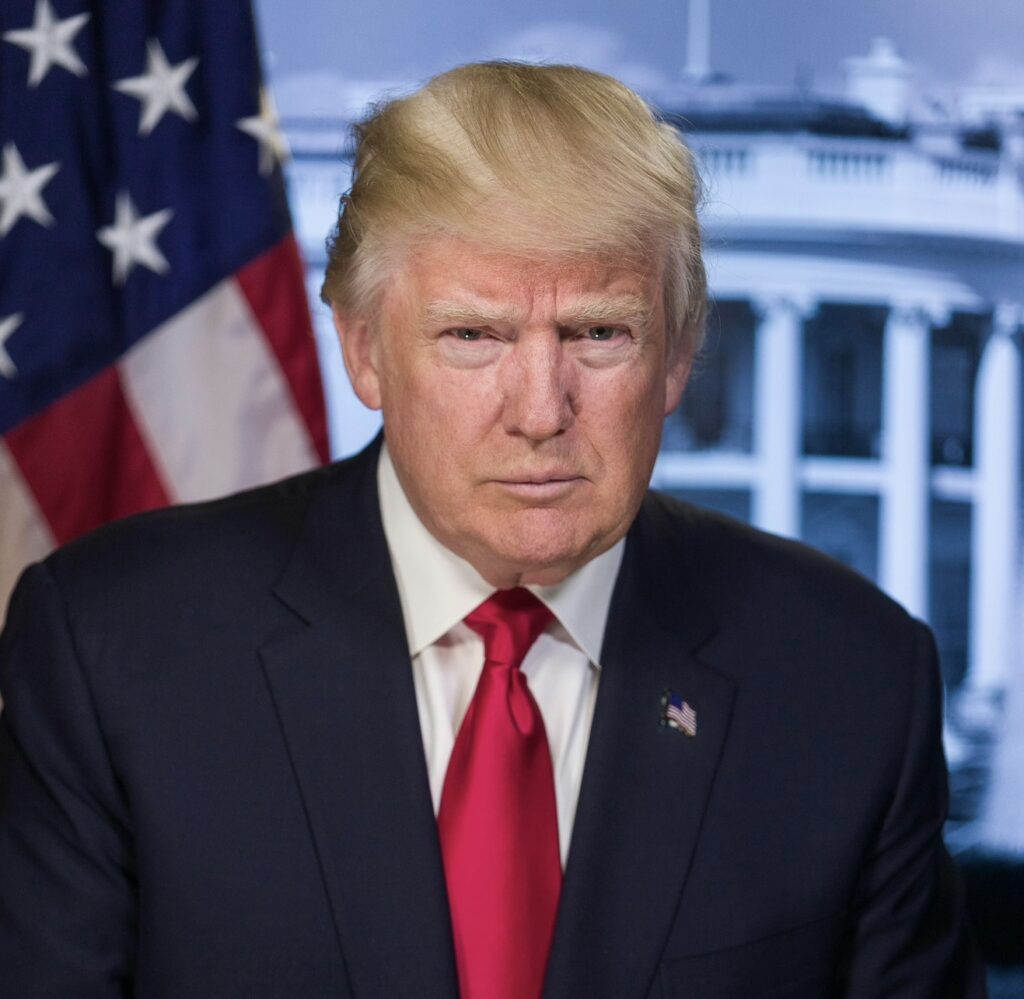President Trump: The Controversial Leader at the Crossroads of Light and Darkness
By Raja Zahid Akhtar Khanzada
Time is a force that frays the threads of age and turns towering stone structures into rubble. Yet, some individuals stand against it like an unsolved riddle. Donald J. Trump is one such man at 79 years of age, he defies exhaustion, remaining active in the arena where most seek the comfort of retirement. This is the stage of life where ordinary men retreat from the jungle of the world to tend to the gardens of their later years. Trump, however, has chosen to stay in the heart of that jungle, fanning the flames of a new fire.
When the branches tremble in the darkness of 2 a.m., Trump is awake. Often surviving on just four hours of sleep, it seems as though the battles of reality captivate him more than the refuge of dreams. His story is no ordinary tale of a politician or a man; it is a saga etched on the mirror of time, one that future generations will continue to read.
It is a narrative of light and darkness, of dreams and reality, of love and power the saga of Donald J. Trump.
At an age when most men are content to sit with their grandchildren, play golf, and savor a peaceful life, Trump is doing what many abandon after turning fifty. He left behind the calm shade of private life to walk under the scorching sun of public service.
Trump’s early years were spent as a successful and wealthy businessman. He built skyscrapers that touched the clouds, created oceans of wealth, and turned his very name into a brand. But the game of wealth was only the beginning; the true battlefield was power.
Two desires are said to dominate human nature: the pursuit of wealth and the pursuit of beautiful women. Trump conquered both. Always surrounded by glamorous women, he never lost sight of one constant principle the protection of his wealth. To safeguard it, he adopted a shrewd and cautious strategy: a prenuptial agreement before every relationship. Love became a matter of accounting, romance tempered by calculation.
This strategy saved him from the fate of Amazon CEO Jeff Bezos, whose divorce saw his wife walk away with half his fortune, making her one of the wealthiest women in the world overnight.
Trump’s critics view this as evidence of cunning and opportunism. Women came and went, but his fortune remained intact. He became a master of legal maneuvering, ensuring his interests were always protected.
For his supporters, however, this discipline represents sacrifice and vision. They argue that Trump had everything wealth, fame, power — yet he chose a path of sacrifice and service.
Here was a man who had built an empire of steel and glass, a symbol of conquest and ambition. The world lay at his feet. Yet, one day, he turned his back on it all. This was no ordinary decision. Billions of dollars were at stake, and endless deals awaited him. But he walked away.
He abandoned comfort, family peace, and personal security because he felt that freedom itself was in peril, that the soul of the nation was at risk, and that ordinary Americans were being cast aside by powerful elites.

While other men of his age spent their days on golf courses, Trump worked late into the night, often until 2 a.m., running on little sleep. Even his presidential salary was given away quarterly to public welfare projects. For him, it was all about a vision an America that was strong, free, and equal for all.
Yet, according to his critics, Trump’s true story was something else entirely. Once a man has conquered wealth and desire, they say, another ambition rises power. The kind of power that stands above the law, that bends decisions to its will, that turns a man from merely rich to a ruler.
Trump did not want to remain just a wealthy businessman; he wanted the throne of America. And he reached it — not as a mere businessman, but as a master tactician of politics.
Observers say Trump skillfully exploited the loopholes in the American system. Whether it was taxes, election laws, or complex business contracts, he bent every rule to his advantage, reshaping the game at every step.
To his supporters, this was brilliance — a man battling for the people against entrenched elites. To his critics, it was manipulation, a fight not for the nation but for himself.
Trump’s journey stands at the crossroads of light and darkness, where ambition and sacrifice blur into one another. It is a story of a man who, through his rise and choices, became a symbol to some, of salvation, and to others, of danger.
History will decide where he ultimately stands. For now, his story reminds us of a truth about human nature: every man carries within him both light and shadow. The measure of greatness lies in how we choose to wield our desires whether for personal gain or the greater good. Donald Trump’s life is a testament to this eternal struggle, a reminder that power never truly belongs to anyone. It lingers only for a moment before moving on to the next player, while history remembers those who dared to face the storm.
For Trump’s supporters, he is seen as a savior, a man determined to rescue his nation from decline. To his critics, however, he is someone who seeks to bend the law to serve his own power. This is the intersection of light and darkness from which Trump’s story emerges as one of the most contentious tales in modern political history.
Trump’s journey does not end there. When he stepped into politics and the crown of power was placed on his head, he ceased to be just a businessman or a wealthy individual and began presenting himself as a leader of the nation. But this crown was not made of flowers; it was woven with thorns. No sooner had he assumed office than a storm rose against him. Clouds of allegations gathered, investigations were launched, and fierce winds of accusations of treason began to blow.
His supporters claim this was the fury of a powerful system that could not tolerate a president who chose to fight for the people rather than be absorbed into what Trump famously called “the swamp.” From investigations and lawsuits to media trials, betrayals by friends, conspiracies by enemies, and resistance from every entrenched power group, obstacles arose at every turn. Yet, through it all, Trump stood firm.
His critics, on the other hand, saw this defiance as obstinacy and rebellion against democratic traditions. In their view, Trump’s battle was never truly for the people but rather for the survival of his own name and legacy. They targeted every policy he pursued — strengthening borders, bringing jobs back to the United States, or engaging in global trade wars — accusing him of deepening societal divisions and damaging international relations.
Critics argue that instead of uniting the American nation, Trump fostered discord, empowering the already powerful while further marginalizing the weak. His conduct was, in their eyes, aggressive and unpresidential, often blurring the line between personal interest and national interest.
To his supporters, however, this unyielding resolve was a mark of courage. They believe he never bowed to global powers, media elites, or entrenched political cultures. In their narrative, he brought jobs back, strengthened the military, and reignited a sense of hope that had been long forgotten.
Where does the truth lie? Perhaps this very struggle is the truth itself. Perhaps both narratives are valid in their own way, for every story has two sides. To some, Trump is a hero, a beacon of hope fighting for freedom and ordinary people. To others, he is a warning bell, a leader who divides rather than unites.
Trump’s most defining trait has been his refusal to retreat. Working late into the night, surviving on four hours of sleep, and rising after every fall became hallmarks of his life. When the sun of power set, he faced lawsuits, endured relentless media criticism, and withstood the assaults of political enemies. Yet, he never bowed. It is this unbroken resolve that keeps the flame of hope burning in the hearts of his supporters.
Within every human being, there exists both light and darkness. Trump’s story mirrors this eternal conflict. In the grand games of the world, wealth, power, and love are always at play and they never move along a straight line. Trump used the law to protect his wealth, politics to gain power, and courage to face the storms that sought to destroy his identity.
In this way, Trump becomes a mirror in which everyone sees their own truth. To some, he is a liberator; to others, a threat. His critics insist he will cross every line for power, allowing personal interests to overshadow national ones. His supporters, conversely, see him as the man who dared to challenge the globalist order and the entrenched elite.
The reality is that every human being is a mixture of light and shadow. No one is solely a figure of virtue or purely a symbol of vice. True greatness lies in leaving a mark on history so profound that its echoes are heard for centuries — whether in praise or in condemnation.
Donald Trump’s life is a living example of this paradox. His personality embodies a clash where some view him as a protector while others see him as a danger. The final judgment will rest in the pages of history, but today’s lesson is clear: truth is rarely found entirely on one side; it exists somewhere in the space between competing visions.
There is a Trump hidden within each of us. One side dreams, works hard, and sacrifices, while the other is stubborn, egotistical, and hungry for power. The real test is which side we choose to nurture.
Trump’s story is not merely that of a politician, but of a human being. It is a tale woven with power and sacrifice, honor and criticism, hope and despair. It teaches us that the line between hero and villain is often an illusion of perspective. The brighter the light a man shines upon the world, the darker his shadows will appear.
Power never truly belongs to anyone. It lingers for a fleeting moment before passing on to someone else. Trump may always remain a polarizing figure, but his life serves as a reminder that history remembers those who have the courage to face the storm.
To his followers, Trump is a patriotic leader. To his critics, he is a master of self-interest. The verdict will ultimately be rendered by history.
The enduring lesson is this: every human being is born with desires, but true greatness lies in using those desires for the benefit of others and for the collective good.




